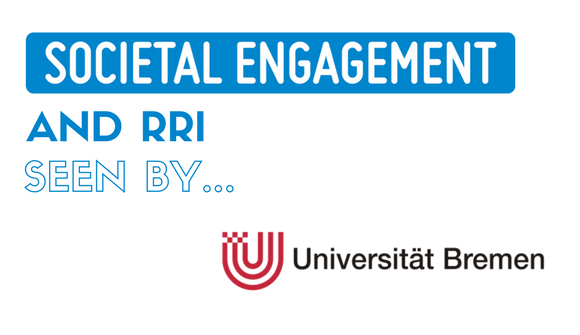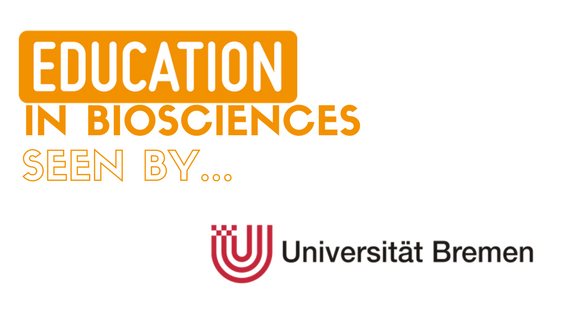How do you understand Societal Engagement in biosciences research? According to our understanding, Societal Engagement in biosciences research is the encouragement of all relevant societal actors for an engagement in the biosciences research and innovation process. The relationship between science and society and the communication between these groups has undergone a great change: from “science” and ‘”society” and the “deficit model of public understanding” (Gross, 1994: 6) to the idea of “science with and for society” and public participation. Two crucial points for investigating as well as fostering interactions between scientists and citizens at the University of Bremen are the technology transfer and the communication of scientific knowledge through contextualization. There are two different ways to transfer concepts, methods, results and applications. Science-internal technology transfer means transfer to the scientific community (as a part of society). Science-external technology transfer refers to transfer into economy and/or society. The diversity of transfer products and target areas requires a broadened concept of technology, since a theoretical concept may well be the starting point of an application development. Research contextualization supports the communication process through emphasizing the particular societal relevance while obliging scientists to take into account ethical and political issues as well as issues of public interest/relevance. What are the current standards and actions to achieve better Societal Engagement in the University of Bremen? The relevance of technology transfer within the research institutes of the University of Bremen seems to be very heterogeneous, so far. This is due to the fact that both basic research as …
Education in Biosciences, seen by the University of Bremen, Germany
University of Bremen – Faculty of Biology & Chemistry Dr. Doris Elster – Head of the Department of Biology Education at the Institute of Science Education. 1. How do you understand “Education” in biosciences research? Science Education is one of the six policy keys within the normative framework of RRI. The core focus is the enhancement of the current education process to better equip citizens (students, teachers, interested laymen) with the necessary knowledge and skills so that they can participate in debates about Research and Innovation (R&I) and can make decisions as scientific literate persons. A further focus of Science Education is to develop and implement educational programs to raise interest in and awareness of responsible research to increase the number of researchers and promote scientific vocations. 2. What are the current standards and actions to achieve better Education in the University of Bremen? The University of Bremen offers services for doctoral and postdoctoral researchers within the educational center BYRD (Early Career Researcher Development). This is a central hub for early career researchers to foster their independent research skills and to provide the means for individual development as well as career paths. The qualification program for doctoral researchers covers workshops such as academic writing and publishing, presenting and networking, research methods, or career orientation and job application standards. The BYRD program for postdocs and advanced researchers comprises qualification workshops and support services in the following fields of competences: research, teaching and instruction, internationalization, networking, transfer and science communication, and gender and …





